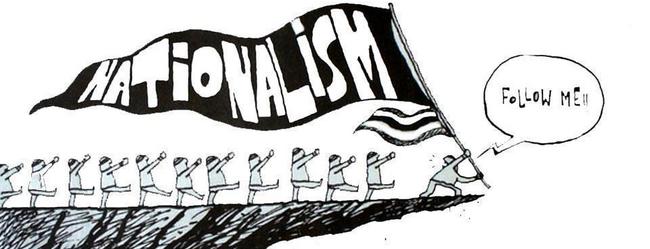Nationalism: a turning point for Europe?
12 February 2018 /

The European Union has had a clear positioning in a continuous way over time on various aspects, especially in the economic sphere through the defence of freedom of competition and the firm commitment to the entry into force of a single currency. However, there are areas where the EU has not had an unequivocal position, such as its position on the various nationalist movements that have arisen within the States. However, this attitude has changed drastically in recent months. For this reason, this article analyses the positioning of the institutions of the European Union on right-wing nationalism and separatism which more often than not hails from it.
Nationalism: not a new issue
It is relevant to note that nationalist movements are present in various parts of the European geography. In Corsica, there exists a strong nationalist sentiment derived from the changes of sovereignty that the island has suffered in its history. In Belgium, Flemish nationalism is present, which claims (in some of its tendencies) the independence of Flanders. In the south of Italy, exists a popular movement which proposes the independence of the Sicilian citizens and is positioned against Italian centralism. There are also minor movements in Finland (The Åland Islands), Sweden (Jämtland region), Denmark (Faroe Islands), Netherlands (province of Friesland), Poland (Silesian region) and Czech Republic (Moravia region).
From the deliberate silence to the consensus
With regard to the European Commission, it has been its president, Jean-Claude Juncker, who has made a more severe criticism of nationalist movements. Inspired by the ideas of François Mitterrand, who said “nationalism is the war”, Juncker has pointed out that “nationalism is poison”. For the head of the Commission, neither the economic crisis, nor the crisis of the Syrian refugees nor the terrorist crisis can be equated to the danger of nationalism (and the extreme right political parties). The politician said that the problem does not derive only from extremist parties, but also that some traditional parties are copying their proposals.
Within the Commission itself, the Commissioner for Competition, Margrethe Vestager, has expressed her concern about nationalist tendencies in European countries such as Hungary, where the government has launched a consultation called “Let’s stop Brussels!” which shows the disagreements between this country and the community institutions.
As for as the European Parliament, the position of its president, Antonio Tajani, has been unambiguous. In his speech in appreciation for receiving the Concord Award, he pointed out that there are some in Europe, populists and nationalists, who are spending time and effort on dividing the EU. They would be better advised to work to achieve concordance. This notion is worth remembering in these times in which narrow right-wing nationalist self-interests are bubbling to the surface. The value of consensus, both constitutional and European, is a public good in and of itself, and should not be jeopardized.
In the same vein, the leaders of various parliamentary groups have also taken sides on this issue. The Progressive Alliance of Socialists and Democrats was one of the first group to pronounce firmly in 2015. The influential German politician, Martin Schulz, expressed concern that nationalism could curb European integration. In an interview with the newspaper Die Welt, he stated that the refugee crisis can reverse the European integration process and bring forward an EU in which nationalism, borders and walls are prevalent.
On behalf of the European People’s Party, its vice president, Gonzalez Pons, has also stated that the future of Europe can only be more Union and no more nationalism. González Pons regretted that currently we have to face the specter of national-populism, which poisons everything, as it happens today in my country in a Europe, has explained, in which we again talk about new frontiers, new cultural segregations, new divisions linguistics and new nations.
Undoubtedly, right-wing nationalism and separatism has different expressions and intensity within the countries of the European Union. To this day it seems that the Catalan issue is the most important and urgent one to address. For the moment, the next steps that will take place in the Spanish national dynamics are uncertain. Initially, the European Union didn’t take part in regional independence crisis in Spain, but recently the European institutions have positioned themselves without condition to Madrid’s position. Europe has already set its position on right-wing nationalism. If it wants to continue being a project with a unionist strength, its leaders should not abandon it.
Manuela Sánchez Gómez works currently on Public Affairs consultancy. She is a former student of the Institute for European Studies (ULB)
